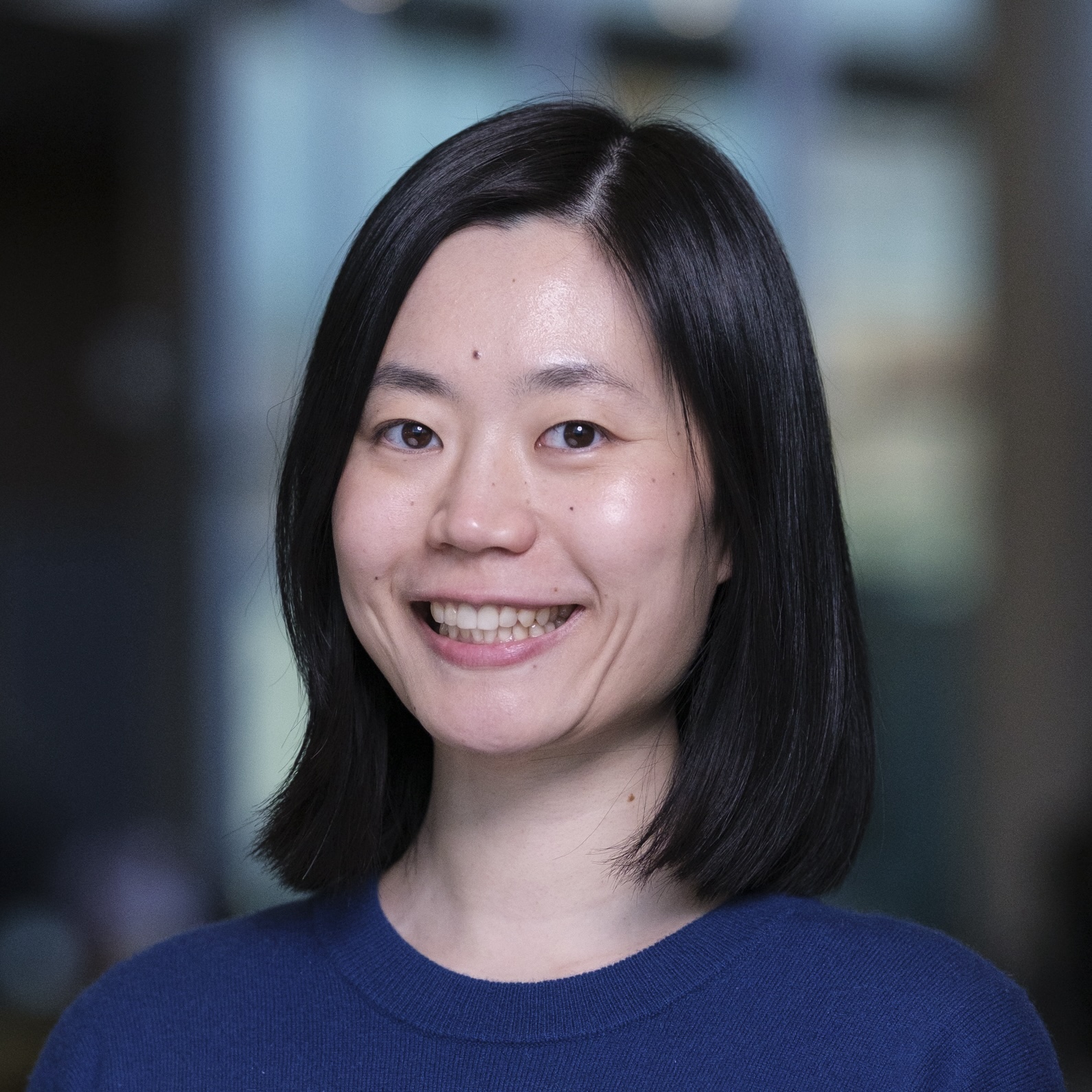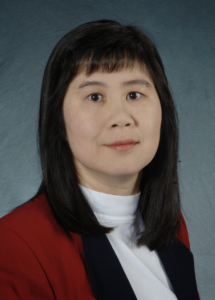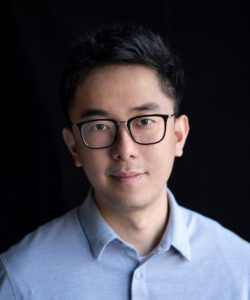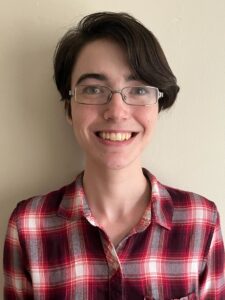 Yizheng Chen is an Assistant Professor of Computer Science at the University of Maryland. She works at the intersection of AI and security. Her research focuses on Code Large Language Models and AI Security. Previously, she received her Ph.D. in Computer Science from the Georgia Institute of Technology, and was a postdoc at University of California, Berkeley and Columbia University. Her work has received an ACM CCS Best Paper Award Runner-up, a Google ASPIRE Award, and Top 10 Finalist of the CSAW Applied Research Competition. She is a recipient of the Anita Borg Memorial Scholarship.
Yizheng Chen is an Assistant Professor of Computer Science at the University of Maryland. She works at the intersection of AI and security. Her research focuses on Code Large Language Models and AI Security. Previously, she received her Ph.D. in Computer Science from the Georgia Institute of Technology, and was a postdoc at University of California, Berkeley and Columbia University. Her work has received an ACM CCS Best Paper Award Runner-up, a Google ASPIRE Award, and Top 10 Finalist of the CSAW Applied Research Competition. She is a recipient of the Anita Borg Memorial Scholarship.
 Giulia Guidi is an Assistant Professor of Computer Science at Cornell University in the Bowsers College of Computing and Information Sciences and is a member of the graduate field of Computational Biology and Applied Mathematics. Dr. Guidi’s work focuses on high-performance computing for large-scale computational sciences. She received her Ph.D. in Computer Science from the University of California Berkeley. Dr. Guidi is part of the Performance and Algorithms Research Group in the Applied Math and Computational Sciences Division at Lawrence Berkeley National Laboratory, where she is currently an affiliate faculty member. She received the 2024 SIAM Activity Group on Supercomputing Early Career Prize, the 2023 Italian Scientists & Scholars in North America Foundation Young Investigator Mario Gerla Award, and the 2020 ACM Special Interest Group on High-Performance Computing Computational & Data Science Fellowship. Dr. Guidi is interested in developing algorithms and software infrastructures on parallel machines to accelerate data processing without sacrificing programming productivity and make high-performance computing more accessible.
Giulia Guidi is an Assistant Professor of Computer Science at Cornell University in the Bowsers College of Computing and Information Sciences and is a member of the graduate field of Computational Biology and Applied Mathematics. Dr. Guidi’s work focuses on high-performance computing for large-scale computational sciences. She received her Ph.D. in Computer Science from the University of California Berkeley. Dr. Guidi is part of the Performance and Algorithms Research Group in the Applied Math and Computational Sciences Division at Lawrence Berkeley National Laboratory, where she is currently an affiliate faculty member. She received the 2024 SIAM Activity Group on Supercomputing Early Career Prize, the 2023 Italian Scientists & Scholars in North America Foundation Young Investigator Mario Gerla Award, and the 2020 ACM Special Interest Group on High-Performance Computing Computational & Data Science Fellowship. Dr. Guidi is interested in developing algorithms and software infrastructures on parallel machines to accelerate data processing without sacrificing programming productivity and make high-performance computing more accessible.

Ming C. Lin is currently Distinguished University Professor, Dr. Barry Mersky and Capital One E-Nnovate Endowed Professor, former Elizabeth Stevinson Iribe Chair of Computer Science at the University of Maryland College Park, and John R. & Louise S. Parker Distinguished Professor Emerita of Computer Science at the University of North Carolina (UNC), Chapel Hill. She obtained her B.S., M.S., and Ph.D. in Electrical Engineering and Computer Science from the University of California, Berkeley. She received several honors and awards, including the NSF Young Faculty Career Award in 1995, Honda Research Initiation Award in 1997, UNC/IBM Junior Faculty Development Award in 1999, UNC Hettleman Award for Scholarly Achievements in 2003, Beverly W. Long Distinguished Professorship 2007-2010, UNC WOWS Scholar 2009-2011, IEEE VGTC Virtual Reality Technical Achievement Award in 2010, and many best paper awards at international conferences. She is a Fellow of National Academy of Inventors, ACM, IEEE, Eurographics, ACM SIGGRAPH Academy, and IEEE VR Academy.
Her research interests include computational robotics, virtual reality, physically-based modeling, sound rendering, haptics, and geometric computing. She has (co-)authored more than 300 refereed publications in these areas and co-edited/authored four books. She has served on hundreds of program committees of leading conferences and co-chaired dozens of international conferences and workshops. She is currently a member of Computing Research Association (CRA) and CRA-WP Board of Directors, former Chair of IEEE Computer Society (CS) Fellows Committee, IEEE CS Computer Pioneer Award, and ACM SIGGRAPH Outstanding Doctoral Dissertation Award. She is a former member of IEEE CS Board of Governors, a former Editor-in-Chief of IEEE Transactions on Visualization and Computer Graphics (2011-2014), a former Chair of IEEE CS Transactions Operations Committee, and a member of several editorial boards. She also served on steering committees and advisory boards of several international conferences, as well as government & industrial technical advisory committees.

Alan Zaoxing Liu is an Assistant Professor of Computer Science at the University of Maryland, College Park. His work spans computer networks, systems, and security to co-design performant, reliable, and secure analytics solutions across the computing stack. His recent research focuses on designing scalable and trustworthy approximate computing systems. He received the best paper award at USENIX FAST’19 and interdisciplinary recognitions, including ACM STOC “Best-of-Theory” plenary talk and USENIX ATC “Best-of-Rest”.

David Mimno is an associate professor and chair of the department of Information Science at Cornell University. He holds a PhD from UMass Amherst and was previously the head programmer at the Perseus Project at Tufts and a researcher at Princeton University. His work has been supported by the Sloan foundation, the NEH, and the NSF.

Danupon Nanongkai is currently a scientific director at Max Planck Institute for Informatics in Saarbrücken, Germany. His research interest is generally on graph algorithms and complexity, where the current focus is on algorithmic techniques that work across various models of computation. He was awarded the Principles of Distributed Computing Doctoral Dissertation Award in 2013, the ERC Starting Grant in 2016, the best paper award from FOCS 2022, and the Frontiers of Science Award in 2024. He received a Ph.D. in Algorithms, Combinatorics, and Optimization (ACO) from Georgia Tech in 2011 and a docent (aka habilitation) in Computer Science from KTH Royal Institute of Technology, Sweden, in 2017.

Peter Schwabe is scientific director at MPI-SP and professor at Radboud University. He graduated from RWTH Aachen University in computer science in 2006 and received a Ph.D. from the Faculty of Mathematics and Computer Science of Eindhoven University of Technology in 2011. He then worked as a postdoctoral researcher at the Institute for Information Science and the Research Center for Information Technology Innovation of Academia Sinica, Taiwan and at National Taiwan University. His research area is cryptographic engineering; in particular the security and performance of cryptographic software. He published more than 70 articles in journals and at international conferences presenting, for example, fast software for a variety of cryptographic primitives including AES, hash functions, elliptic-curve cryptography, and cryptographic pairings. He has also published articles on fast cryptanalysis, in particular attacks on the discrete-logarithm problem. In recent years he has focused in particular on post-quantum cryptography. He co-authored the “NewHope” and “NTRU-HRSS” lattice-based key-encapsulation schemes which were used in post-quantum TLS experiments by Google and he is co-submitter of seven proposals to the NIST post-quantum crypto project, all of which made it to the second round, five of which made it to the third round, and 3 of which were selected after round 3 for standardization. In 2021, he co-founded the Formosa-Crypto project, an effort by multiple research groups to build (post-quantum) cryptographic software with formal proofs of functional correctness and security.

Rachee Singh is an assistant professor of Computer Science at Cornell University. Her research group at Cornell develops systems and algorithms for programmable optical interconnects. Her work has been awarded a Google PhD fellowship, the SIGCOMM doctoral dissertation award and an Amazon Research Award.

Adish Singla is a faculty member at the MPI for Software Systems (MPI-SWS), Germany, where he has been leading the Machine Teaching Group since 2017. He conducts research in the area of Machine Teaching, with a particular focus on open-ended learning and problem-solving domains. In recent years, his research has centered around developing AI-driven educational technology for introductory programming environments. He has received several recognitions for his research, including IJCAI Early Career Spotlight (2022), AAAI Outstanding Paper Honorable Mention Award (2022), and ERC Starting Grant (2021). He also has extensive experience working in the industry and is a recipient of several industry awards, including a research grant from Microsoft Research Ph.D. Scholarship Programme (2018), Facebook Graduate Fellowship (2015), Microsoft Tech Transfer Award (2011), and Microsoft Gold Star Award (2010).

Milijana Surbatovich is an Assistant Professor in the Computer Science Department at the University of Maryland College Park. Previously, she obtained her PhD at Carnegie Mellon University, where she was advised by Brandon Lucia and Limin Jia. Her research focuses on applying programming languages and formal methods techniques to design correct, reliable, and secure system stacks for non-traditional computing platforms. Broadly, she is interested in problems at the intersection of programming languages, computer architecture, and security.
